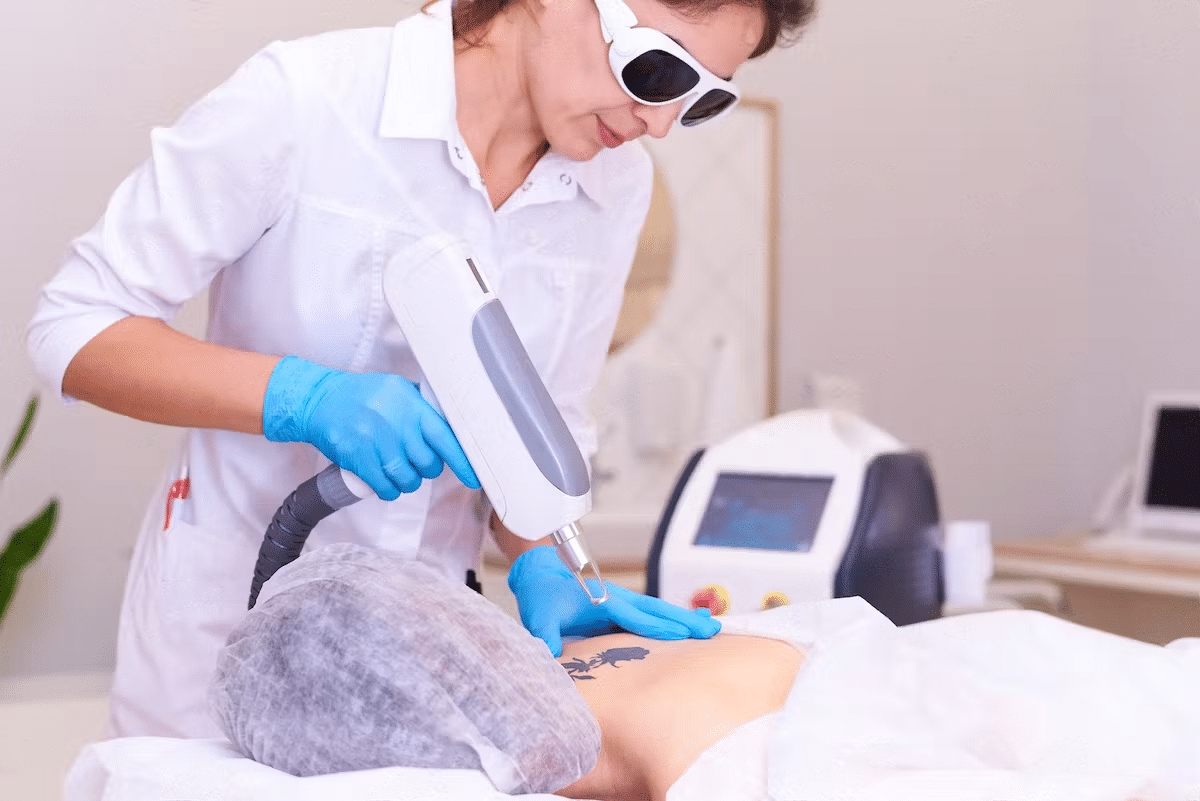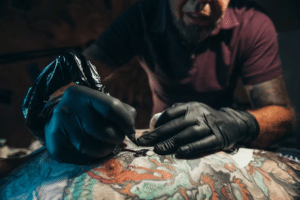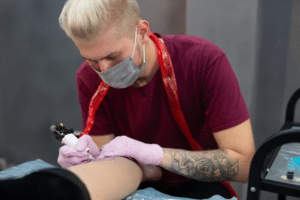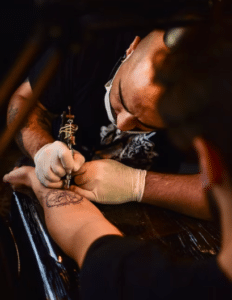
There is no doubt that tattoos are one of the most popular forms of art. They can indeed be very beautiful, but they can also be very dangerous. Tattoos can cause infections, which can lead to serious health problems. To prevent these types of infections, it is vital to be aware of the types of infections that can be contracted when getting a tattoo and how to prevent them.
The use of tattoos has increased due to the development of digital technology in recent decades. There is no doubt that tattoos are becoming increasingly popular as a way to express one’s identity and personality. Some infections can be spread through tattooing, so it is important to keep that in mind. The list of these infections includes the herpes simplex virus type 1 (HSV-1), the human papillomavirus (HPV), the hepatitis C and the herpes simplex virus 2 (HSV-2).
What Types of Infections Can Tattoos Cause?
As a result of tattoos breaching the skin, it is possible to contract skin infections and other complications. These complications may include the following:
- Allergic reactions: The dyes used in tattoos, especially those that are red, green, yellow and blue, can cause allergic reactions in the skin, which may manifest as an itchy rash at the site of the tattoo. The tattoo can still cause this kind of reaction even after years have passed since you got it.
- Skin infections: It is possible to get an infection after getting a tattoo on your skin.
- Other skin problems: A granuloma is a form of inflammation that can sometimes form around tattoo ink. As a result of an overgrowth of scar tissue caused by tattooing, keloids can also be formed on top of the tattooed area.
- Bloodborne diseases: It is possible for you to contract various bloodborne diseases, such as methicillin-resistant Staphylococcus aureus (MRSA), hepatitis B and hepatitis C, if the equipment used to create your tattoo is contaminated with infected blood.
There have been complications associated with MRIs: Occasionally, tattoos or permanent makeup can cause swelling or burning in the affected areas during magnetic resonance imaging (MRI) exams, depending on how the tattoos or permanent makeup were applied. Tattoo pigments can interfere with the image’s quality in some cases.
How Fast Can A Tattoo Get Infected?
Getting a tattoo can cause some infections. In some cases, they don’t manifest themselves until months after the fact.

Symptoms and Causes
Two types of bacteria can cause a tattoo infection. These are the following:
- Superficial infections. It can only affect the outer layer of the skin, such as impetigo.
Deep bacterial infections, such as erysipelas, cellulitis, or sepsis.
What does an infected tattoo look like?
IIt is possible to notice signs of a tattoo infection across the entire tattoo or within certain colours. You may develop bumps on your skin (papules) that contain pus (pustules). These bumps are larger than papules and form on or beneath the skin.
Management and Treatment
It is important to take care of your new tattoo depending on the type of work done and its extent. In general, however, you’ll need to:
- Make sure the tattooed skin is kept clean: Wash your hands with soap and water and use a gentle touch. Avoid direct streams of water on newly tattooed skin while showering. Dry the area by patting it, not rubbing it.
- Moisturise your skin: The tattooed skin should be moisturised several times daily with a mild moisturiser.
- Avoid exposure to the sun: Keep the tattooed area out for at least a few weeks.
- Swimming should be avoided: While your tattoo is healing, avoid swimming pools, hot tubs, rivers, lakes, and other bodies of water.
- Make sure you choose your clothing carefully: If you have a tattoo, avoid wearing anything that might stick to it.
- You need to give your body time to heal: Scabs should not be picked at, which increases the risk of infection and damages the design.
You should consult your doctor if your tattoo is infected or not healing properly. You can ask your dermatologist about laser surgery or other options for tattoo removal if your tattoo isn’t what you expected.
Conclusion
Ink is deposited deep into your skin with a mechanical needle during tattooing. As a result, the immune system responds. Ink is permanently trapped within your skin cells due to this process. It can also cause tattoo infections in some people. In some cases, they don’t manifest themselves until months after the fact. It’s crucial to take note of how to treat and how to spot infections in case you wish to plan your next tattoo.
Was this article helpful? Let us know in the comments.
FAQs
Will the infected tattoo heal itself?
The infection of tattoos is a very common problem. It is one of the most common reasons for tattoos to get infected. The infection can cause serious damage to the skin and even lead to death. Therefore, you must know what the infection looks like to avoid and treat it if necessary because it is unlikely to treat itself over time.
How long do tattoo infections last?
We know that tattoo infections can be treated with a course of antibiotics to successfully eradicate them. However, we don’t know the exact duration of the infection.
Can tattoo infections occur if I go to a licensed tattoo artist and reputable tattoo shop?
Tattoo infections can occur in any tattoo shop, but it’s more likely to occur at a non-licensed, non-reputable tattoo shop or an unskilled, unlicensed, unprofessional tattoo artist.




